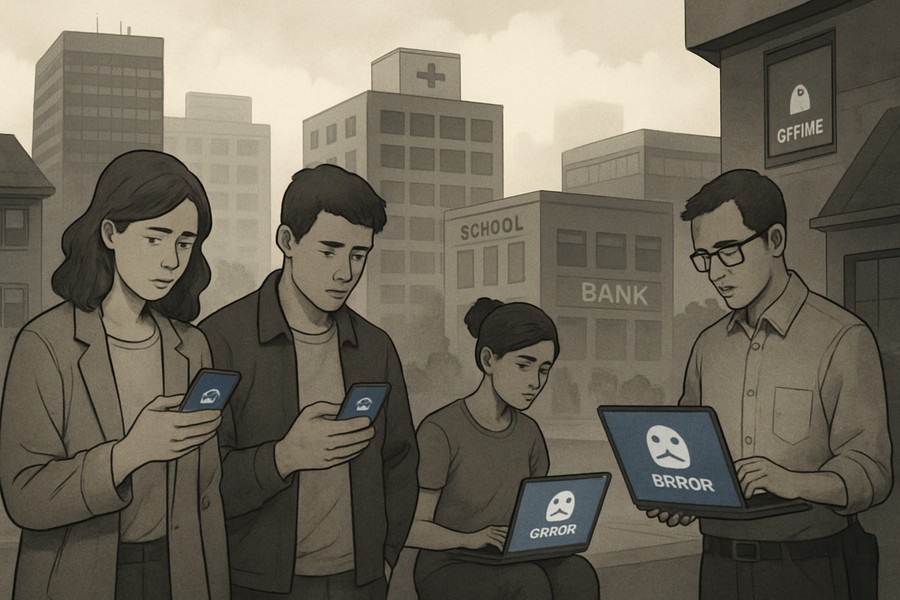
The Unseen Risks of Relying on a Single Internet Company
The recent shutdown of a major internet service provider has made it clear just how much we depend on a single firm for our digital needs. When this company's services were interrupted, it wasn't only individuals who couldn't order their coffee online or check the weather on their smart devices. Critical services like hospital communication systems and classroom lesson plans were also impacted. Even a mobile banking service went offline, blocking people from their own funds. Home security systems and various smart home devices also stopped functioning.
This internet service provider is one of a few powerful companies that essentially form the backbone of the internet. They supply businesses with the necessary computing tools to run crucial daily operations. This includes everything from storage to virtual servers that companies use to develop and deploy apps without needing their own hardware.
While there are other cloud providers, none can match the scale of the big three: this company, along with two other tech giants. These three dominate the majority of the world's cloud services, accounting for about 60% of the market. Among them, the recently interrupted service is the largest, controlling approximately 37% of the market and boasting a customer base of roughly 4 million.
The Domino Effect of a Single Service Interruption
When a platform as influential as this one goes down, the effects ripple out in all directions. Experts predict that the total cost of the recent disruption will likely reach into the billions of dollars. The shutdown creates a single, massive point of failure that can impact everything from warehouses and deliveries to the ability of businesses to sell their goods and services online.
The effects of the outage were felt in everyday life. For instance, one couple's morning errands in Indiana were constantly disrupted. They received alerts about a vehicle in their driveway but couldn't view the security camera footage. At a doctor's office, the scheduling software was so unreliable it took 40 minutes to arrange the next 25 days of appointments, a task that usually only takes minutes. Even at a retail store, the line was backed up because the credit card reader was malfunctioning.
The couple's lunch at a local restaurant also faced issues. The establishment couldn't process card payments, leading the manager to offer to pay for their meal. This series of events highlighted the frightening reality of how dependent society has become on technology. This incident raises questions about the wisdom of businesses putting all their digital eggs in one basket, given the wide-ranging impact when that basket breaks.
Business Operations Thrown into Chaos
Businesses like the restaurant that the couple visited were also thrown into chaos. The eatery uses a point-of-sale system that relies on the affected internet service. The restaurant's manager expressed relief that the outage occurred on a Monday and not on a busier weekend day.
The shutdown also impacted a woman who manages an Italian restaurant, eight mental health clinics, and several rental properties in the Houston area. Her restaurant's online ordering system, which is run through the same system used by the Indiana eatery, was down. This situation meant a loss of one-third of her daily business. At her mental health clinics, staff members couldn't validate clients' insurance information because the online system for that information wasn't working. Even the payment system for her rental properties was down.
All of these incidents offer a sobering reminder of the risks of such heavy reliance on technology, especially when that technology is controlled by a single entity.
